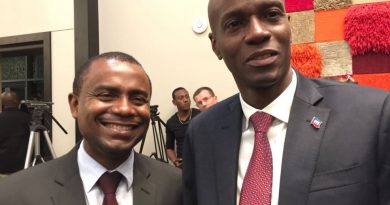Brazil: New Leader of the Climate Movement?
By Renata Koch Alvarenga
News Editor
Ever since Paris, where the Paris Agreement on climate change was signed during COP21, many developments have occurred, and some drawbacks too. While major developed countries like the United States – in the current Administration – still debate the existence of climate change and even disapprove of the climate treaty, others are taking action, especially developing countries like Brazil.
One of the main controversial issues during COP21 was the clause to keep the global temperature rise at 1.5°C (degrees Celsius), which passed as a recommendation, not an enforcement for the member states. To be a leader in the fight against climate change, Brazil needs to take the stand on this matter.
The Brazilian land is rich in resources and biodiversity, as it has most of the Amazon rainforest in its territory. Therefore, the Brazilian government needs to make big changes in the use of its land if it wants to keep the temperature rise at 1.5°C.
The agriculture and the land use in Brazil are two sectors that emit a lot of carbon dioxide into the atmosphere, a greenhouse gas that causes global warming. By providing incentives for the landowners to implement low carbon practices, the Brazilian government would reduce their country emissions by a great number.
According to Brazil’s NDC (Nationally Determined Contribution), which are voluntary goals established by each country in order to reduce their own emissions of greenhouse gases, the government compromised itself to reduce its emissions by 37% until 2025. To make that happen, Brazil plans on, among other things, restoring 12 million hectares of forests and ending the illegal deforestation in the country.
Despite this, more needs to be done. The compromise to end illegal deforestation was made during the creation of the United Nations Millennium Development Goals, with the goal of eradicating this practice by 2020; this means that the “new” methods to act on climate change are not at all innovative.
Critiques to the flawed NDCs aside, the good news is that achieving the 2020 goal is still possible. What is needed, however, is a bolder commitment by the Brazilian government, a pledge to do more than what is stated in Brazil’s Forestry Code.
In order to become a leader in climate action, Brazil needs to commit to zero deforestation, not just zero illegal deforestation or zero liquid deforestation. With the current political, social, and economic turmoil in the country, this won’t be an easy task, but it will, undoubtedly, be the wisest one for the future of the planet.


